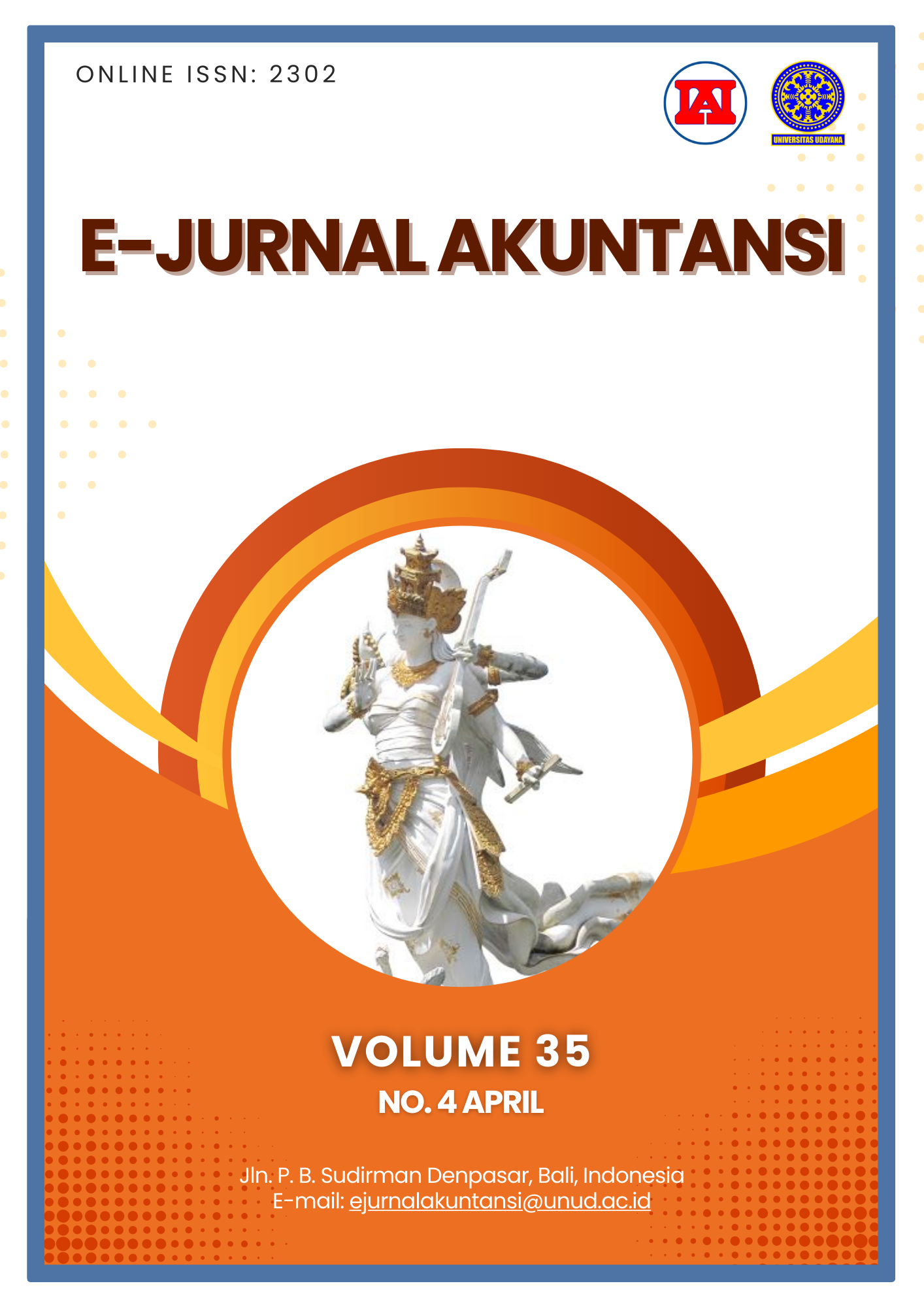Understanding the Low Success Rate of Tax Appeals: A Qualitative Case Study Using Fishbone Analysis
Abstract
Tax court data indicates an increasing trend in the number of tax disputes. Further analysis of appeal decisions from 2019-2023 within the jurisdiction of the South Jakarta Madya Tax Office I reveals that 47.23% of all decisions resulted in "granting all" verdicts. This outcome demonstrates that the Directorate General of Taxes' (DGT) success rate remains suboptimal. This study aims to identify the causes and potential solutions for the low rate of DGT's success, particularly in the KPP Madya Jakarta Selatan I. The research methodology employs a qualitative case study approach utilising fishbone analysis of data derived from "granting all" appeal decisions and interviews with parties involved in the appeal process. The findings of this study suggest that the DGT's lack of success in tax audits is attributable to disparities in the interpretation of regulatory implementation among tax auditors, taxpayers, and tax courts; the utilisation of indirect methods without corroborating evidence; and the availability of relevant evidence during the audit phase and new evidence during the trial proceedings.
Keywords: Tax Audit; Tax Disputes; Tax Appeal; Fishbone Analysis
Downloads
References
Aritonang, Johannes. (2020). Analisis Penyebab Kekalahan DJP pada Sengketa Pajak Sehubungan dengan Penetapan Secara Jabatan. Jakarta : Simposium Nasional Keuangan Negara 2020 Hal 953
Argawal, Aditi. (2016). An Expert Guide to Problem Solving with Practical Examples.
Creswell, J. W. (2013). Qualitative Inquiry and Research Design : Choosing Among Five Approaches (3rd editions ed.). SAGE Publications, Inc.
Creswell, J. W. (2018). Research Design: Qualitative, Quantitative, and Mixed Methods Approaches (5th ed.). SAGE Publications, Inc
Ellet, W. (2018). The Case Study Handbook A Student Guide. Boston: Harvard Business Review Press.
Hamdani, A. (2023). Upaya penyelesaian sengketa pajak melalui keberatan pajak. Amnesti Jurnal Hukum, 5(2), 191-206.
https://doi.org/10.37729/amnesti.v5i2.3024
Ilori, A., Sawa, B., & Gobir, A. (2020). Application of cause-and-effect-analysis for evaluating causes of fire disasters in public and private secondary schools in ilorin metropolis, nigeria. Archives of Current Research International, 1-11. https://doi.org/10.9734/acri/2019/v19i230156
Kementerian Keuangan Republik Indonesia. (2013). Peraturan Menteri Keuangan Republik Indonesia Nomor 17/PMK.03/2013 tentang Tata Cara Pemeriksaan. www.djpp.depkumham.go.id
Kripendorff, K. (2004). Content Analysis An Introduction to Its Methodology. United Statef of America: SAGE Publications
Marlisza, D., & Yulianti, Y. (2022). ANALISIS AUDIT COVERAGE RATIO DALAM RANGKA MENINGKATKAN KINERJA PEMERIKSAAN PAJAK. In JABE (Journal of Applied Business and Economic) (Vol. 8, Issue 3, p. 228).
https://doi.org/10.30998/jabe.v8i3.11417
Monoarfa, M., Hariyanto, Y., & Rasyid, A. (2021). Analisis penyebab bottleneck pada aliran produksi briquette charcoal dengan menggunakan diagram fishbone di PT. Saraswati coconut product. Jambura Industrial Review (Jirev), 1(1), 15-21. https://doi.org/10.37905/jirev.1.1.15-21
Namira, A. (2021). Evaluation of achievement of overburden production target using fishbone diagram method at pit a site b pt xyz, south sumatera province. Epi International Journal of Engineering, 4(2), 158-167. https://doi.org/10.25042/10.25042/epi-ije.082021.08
Neuman, W. L. (2003). Social Research Method: Qualitative and Quantitative Approaches Fifth Edition. Pearson Education Limited
Olaoye, C. O., Ogunleye, S. A., & Solanke, F. T. (2018). Tax audit and tax productivity in Lagos state, Nigeria. Asian Journal of Accounting Research, 3(2). https://doi.org/10.1108/AJAR-08-2018-0028
Li, W., Pittman, J. A., & Wang, Z. T. (2019). The determinants and consequences of tax audits: Some evidence from China. Journal of the American Taxation Association, 41(1). https://doi.org/10.2308/atax-52136
Lewis, Chrissando Iglasito. (2022). Analisis Strategi DJP dalam Upaya Memenangkan Perkara Pada Permohonan Banding Wajib Pajak di Pengadilan Pajak. Tangerang: Politeknik Keuangan Negara STAN
Palupiningrum, Nita. (2023). Analisis Sengketa Pajak dalam Rangka Impor: Studi Kasus Pada Putusan Pengadilan Pajak Tahun 2016-2022. Depok: Universitas Indonesia
Putra, R. and Mispiyanti, M. (2021). Pelaksanaan Standard Operating Procedure (SOP) Penyelesaian Permohonan Keberatan di Kantor Wilayah Direktorat Jenderal Pajak Daerah Istimewa Yogyakarta. Fokus Bisnis Media Pengkajian Manajemen Dan Akuntansi, 20(1), 100-128. https://doi.org/10.32639/fokusbisnis.v20i1.822
Sari, Mega Nurmala. (2022). Probabilitas dan Faktor-faktor yang Mempengaruhi Kekalahan Sengketa Pajak di Pengadilan Pajak Indonesia. Depok: Universitas Indonesia
Siahaan, Rony Ricardo Parlindungan. (2012). Kajian Penyebab Permohonan Banding Wajib Pajak Dimenangkan di Pengadilan Pajak dan Upaya-upaya DJP untuk Meminimalisirnya. Jakarta : Universitas Indonesia
Tripariyanto, A. and Rahayuningsih, S. (2020). Penerapan Metode Hira dan Fishbone Diagram pada Praktek Siswa SMK yang Menimbulkan Risiko Kecelakaan Kerja pada Bengkel Ototronik SMK. Jati Unik Jurnal Ilmiah Teknik Dan Manajemen Industri, 3(2), 90-103. https://doi.org/10.30737/jatiunik.v3i2.841
Wong, K. (2011). Using an Ishikawa Diagram as a Tool to Assist Memory and Retrieval of Relevant Medical Cases from The Medical Literature. Journal of Medical Case Reports, 5(1). https://doi.org/10.1186/1752-1947-5-120
Yin, R. K. (2018). Case Study Research and Applications: Design and Methods. Los Angeles: SAGE Publications, Inc

This work is licensed under a Creative Commons Attribution-ShareAlike 4.0 International License.

















